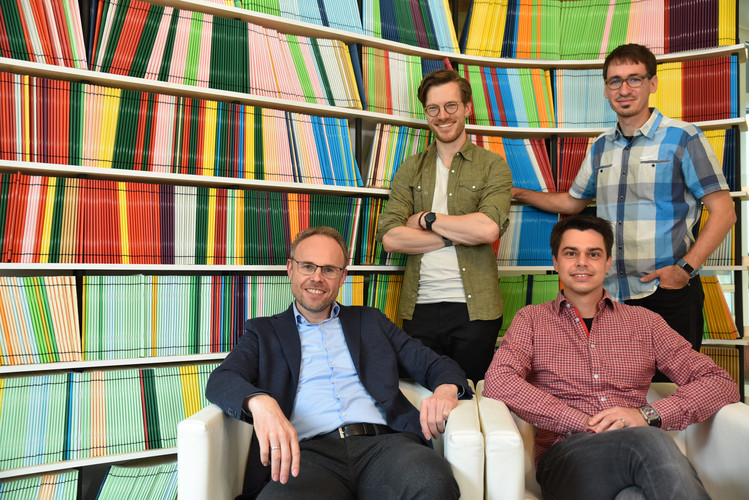
Vaccine boosts innate immunity in people with dormant immune cells
Bacillus Calmette-Guérin (BCG) is one of the world’s oldest and most widely used vaccines. It was developed in the early 20th century to provide protection from tuberculosis. Surprisingly, this vaccine protects not only against tuberculosis but also reduces the risk for various other infections, through a mechanism called trained immunity. A new study led by Christoph Bock and Mihai Netea found that epigenetic cell states predict whether or not an individual profits from the “wake-up call” to the innate immune system that is provided by the BCG vaccine. This discovery contributes to the development of future therapeutics that induce…
Read more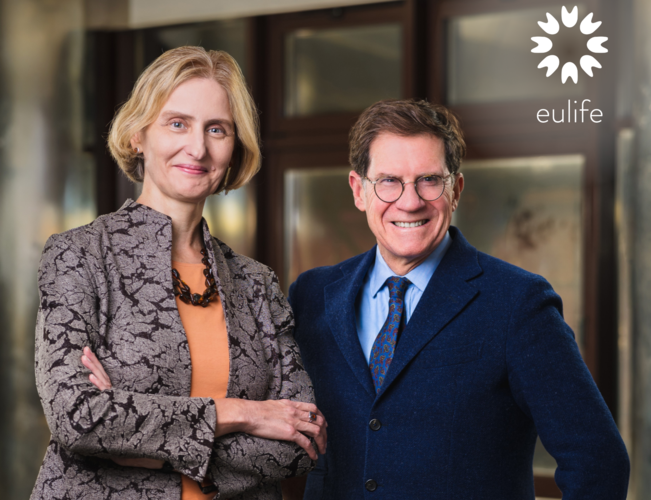
Giulio Superti-Furga and Marta Miączyńska are appointed new chair and co-chair of EU-LIFE
Giulio Superti-Furga, Scientific Director of the CeMM Research Center for Molecular Medicine of the Austrian Academy of Sciences, and Marta Miączyńska, Director of the International Institute of Molecular and Cell Biology in Warsaw (IIMCB), have been appointed new Chair and Co-Chair of the EU-LIFE alliance of leading life science research institutes in Europe.
Over the next two years, Giulio and Marta will work closely with Marta Agostinho, EU-LIFE’s Executive Director, to help shape the European research scene, particularly with regard to scientific excellence. EU-LIFE’s priorities for the near future include emphasising the role of…
Read more
Season Greetings 2023
We would like to thank our CeMM members and collaborators for their efforts and dedication to research. 2023 was a successful year with many achievements and we paved the way for new projects and endeavors in the upcoming year.
An excerpt about CeMM accomplishments in 2023:
- the ERC Starting Grants of Barbara Maier and Clarissa Campbell
- the Kubicek lab pinpointing the exact location of the SMNDC1 protein within the cell nucleus and identifying an inhibitor that opens up the potential for therapeutic applications of SMNDC1
- the Superti-Furga lab developing a new method that allowed the discovery of specific inhibitors of a lactate…
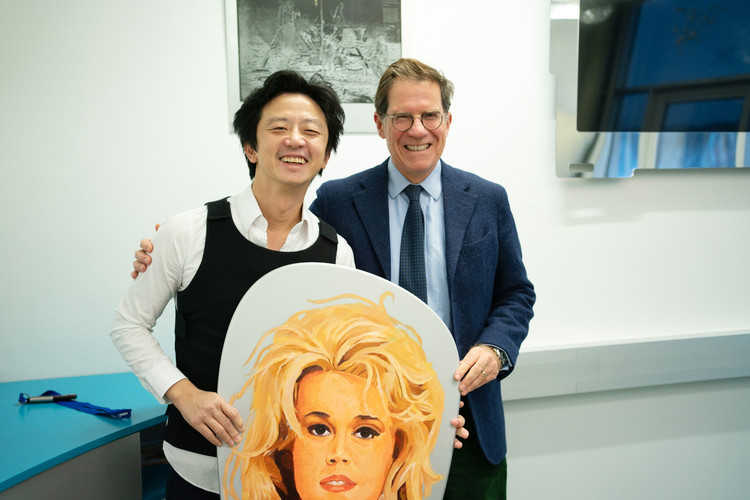
Artist Jun Yang designed chair’s backrest for CeMM’s Brain Lounge
On Thursday, 30 November 2023, CeMM welcomed artist Jun Yang for the inauguration of the new chair backrest that he specially designed for CeMM’s Brain Lounge, which completes the carousel. During the event, Jun Yang presented his piece of art entitled “The Voyage of Barbarella” and discussed with CeMM PhD students the process of conception and creation, how the story and narration can be the art as much as the physical representation. He spent time discussing what art is to him and encouraged them to view art with openness and generosity.
CeMM’s Brain Lounge is located on the 8th floor of the CeMM building, overlooking the impressive…
Read more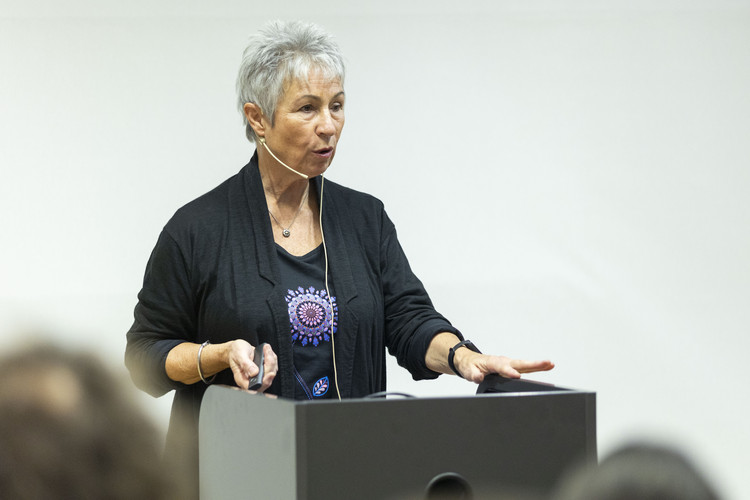
12th CeMM S.M.A.R.T. Lecture with Prof. Barbara Seidlhofer
On 27 November, Barbara Seidlhofer, Professor of English and Applied Linguistics at the University of Vienna, gave an inspiring 12th S.M.A.R.T. Lecture at CeMM. In this session, Professor Seidlhofer discussed the topic of English as a Lingua Franca (ELF), i.e. the means of communication regarded as the most convenient (and workable) one by speakers from a different first-language background. More often than not, there are no native speakers of English involved in these lingua franca interactions. When it comes to the teaching of English, however, native speakers are still regarded as the `authentic` source of the target language and…
Read more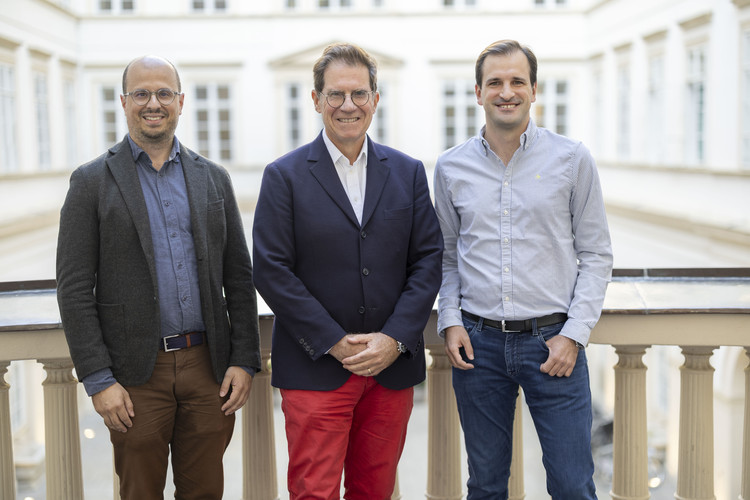
Newly discovered compound blocks signalling pathway of immune response
Scientists at CeMM, the Medical University of Vienna and the University of Lausanne succeeded for the first time in identifying and characterizing a new small molecule called "Feeblin", which can inhibit the interaction of the transporter protein SLC15A4 with the adapter protein TASL. Both proteins are part of proinflammatory signalling pathways in the body. In particular, patients with autoimmune diseases such as systemic lupus (SLE) could benefit from inhibiting the signalling pathway. The study has now been published in Nature Communications.
In autoimmune diseases, inflammation is chronic and leads to severe tissue damage. Several…
Read more
Giulio Superti-Furga becomes director of the Biomedical Research and Biotechnology Center in Sicily
CeMM Director Giulio Superti-Furga, a renowned molecular biologist in Austria, takes on a new task: The Italian Ri.MED Foundation and UPMC (University of Pittsburgh Medical Center) selected the native Italian for the position of director of the new Biomedical Research and Biotechnology Center (BRBC) currently under construction in Sicily. Superti-Furga will initially support the Ri.MED Foundation with consultancy services of one week per month, to advise on the organization of the new research center, until the buildings are completed. The goal is to create an international hub where the relationship of humans with the environment will serve…
Read more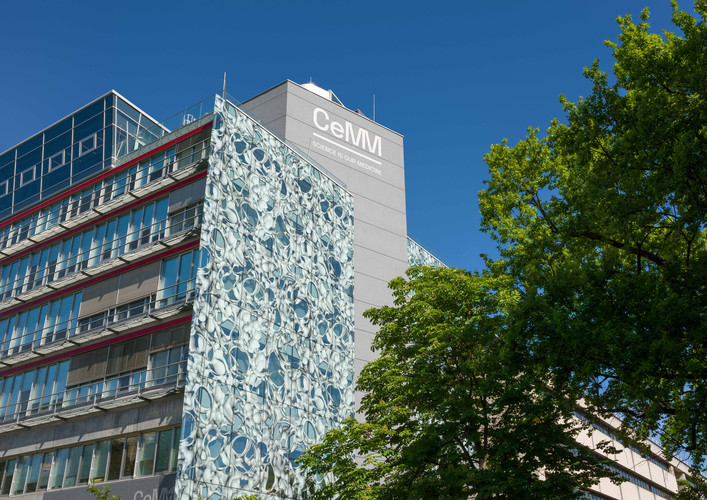
CeMM stands in solidarity with Israel
CeMM strongly condemns the attacks and war in Israel and wholeheartedly wishes to express solidarity with the citizens across Israel. We send our support to scientific colleagues, collaborators, and CeMM friends and alumni in these difficult times.
Read more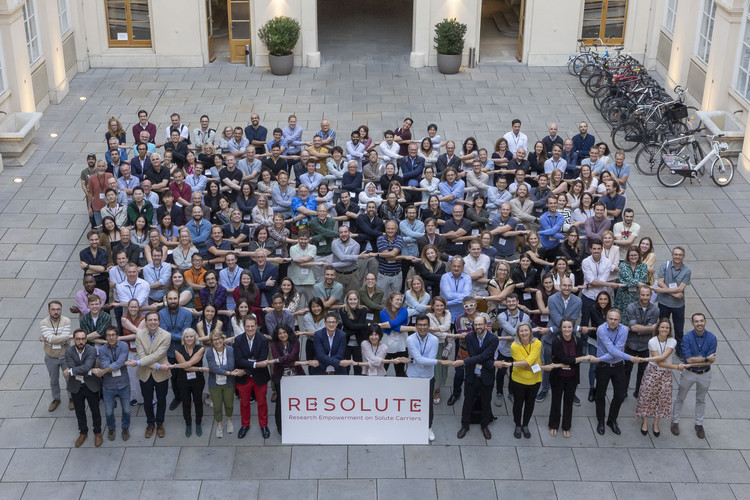
RESOLUTE and REsolution Final Conference on 27-29 September 2023
From 27 to 29 September 2023, the 'Unlocking Transporters for Drug Discovery' Conference took place at the historic Palais Niederösterreich in Vienna, Austria. The event, open for the first time to the entire scientific community, marked the conclusion of the RESOLUTE and REsolution projects, which are set to conclude by the end of 2023.
The REsolution and RESOLUTE consortia are public-private research partnerships supported by the Innovative Health Initiative (IHI), the European Union, and EFPIA. They are coordinated by CeMM and Pfizer and include partners from academia and the pharmaceutical industry. The RESOLUTE project aims to intensify…
Read more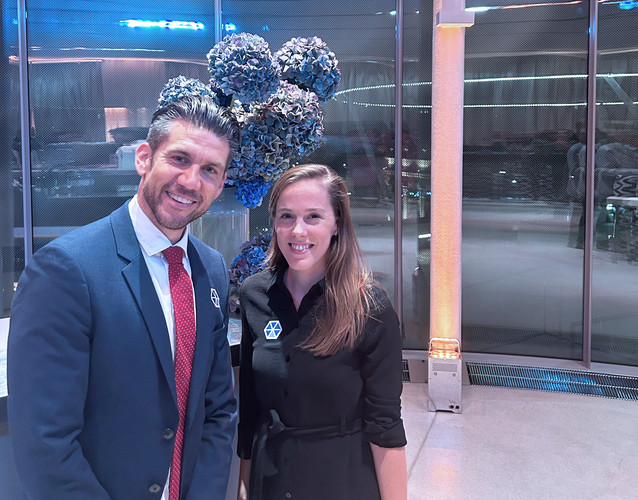
Thomas Reiberger and Laura de Rooij received the prestigious LBG CRG funding for their project "MOTION"
Congratulations to CeMM Adjunct Principal Investigator Thomas Reiberger and CeMM Principal Investigator Laura de Rooij, who received the prestigious CRG funding from the Ludwig Boltzmann Gesellschaft for their project entitled "Disease-Driving Mechanisms in Patients with Portal Hypertension," in short "MOTION"!
Portal Hypertension (PH) is a severe consequence of liver diseases, causing more than 2 million (4% of all) deaths worldwide each year. Nevertheless, there are no approved drugs for the effective treatment of PH. Led by CeMM Adjunct PI Thomas Reiberger from the Clinical Department of Gastroenterology and Hepatology at MedUni Vienna…
Read more